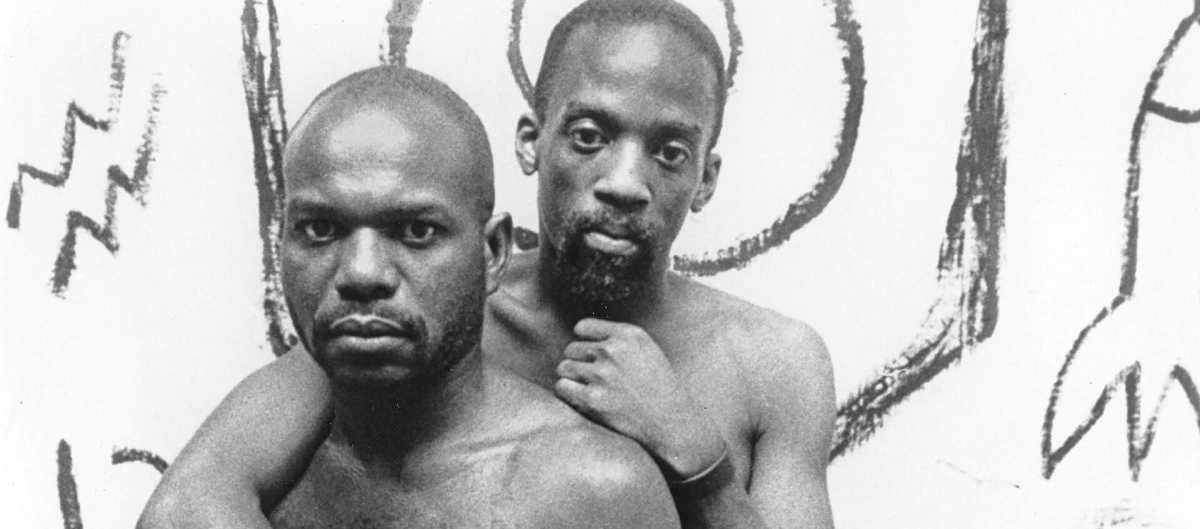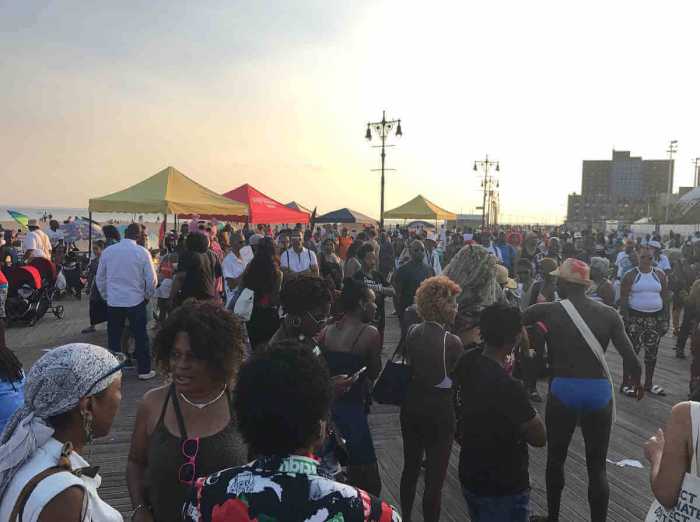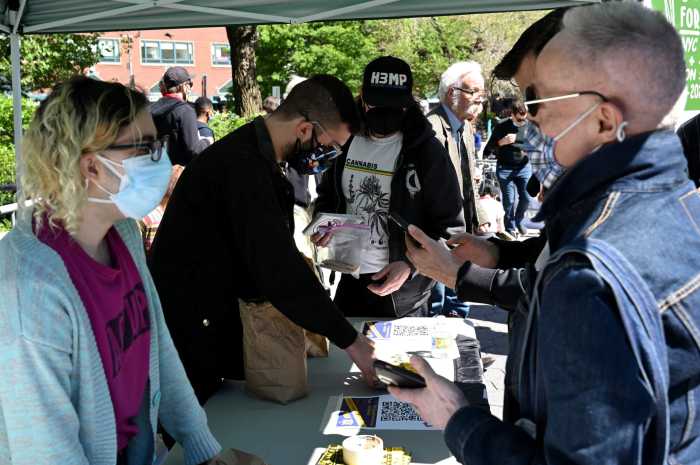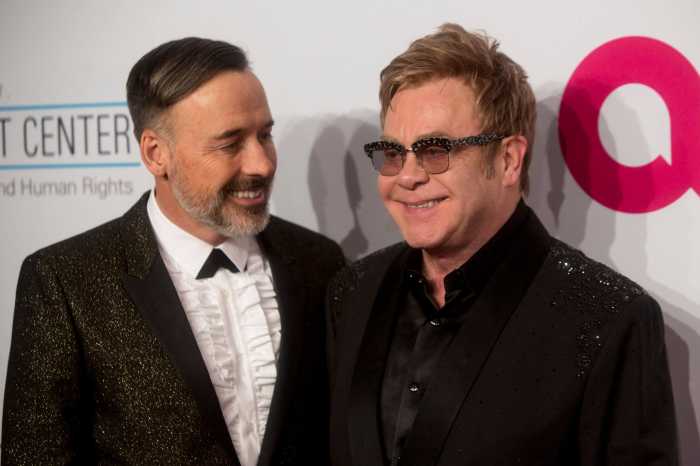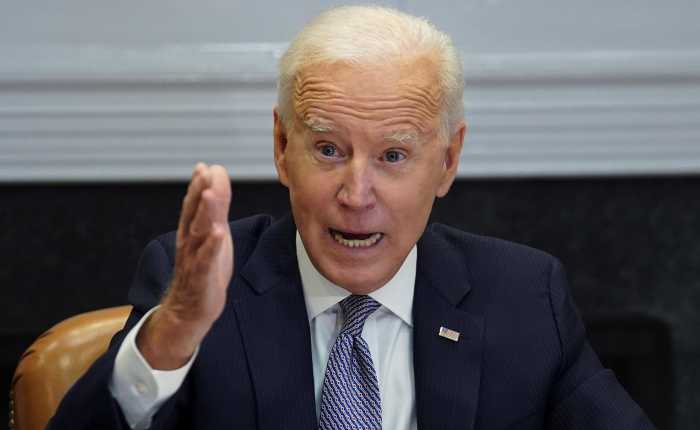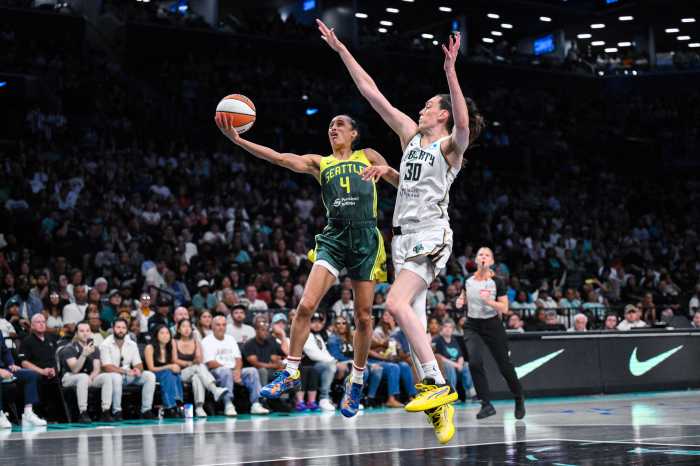This year’s World AIDS Day observance at the New York City AIDS Memorial (West 12th Street at Greenwich Avenue) will begin at 5 p.m., with an hour of readings from the works of authors, poets, and filmmakers who died from AIDS-related causes. The program will include selections from the following artists:
Tory Dent (1958-2005) was a poet, art critic, and writer about AIDS. Among her body of work was the 1999 poetry collection “HIV, Mon Amour,” which won the Academy of American Poets’ James Laughlin Award — which recognizes excellence in second books of poetry — and was a finalist for the National Book Critics Circle Award. Dent’s work will be read by Tim Murphy, the event’s curator who is a novelist, journalist, and teacher who has been living with HIV since 2000.
Essex Hemphill (1957-1995) was a poet and activist with a strong focus on African-American gay life. His poetry collections included “Earth Life” and “Conditions.” With Black filmmaker Marlon Riggs, Hemphill worked on two documentaries, “Tongues Untied,” which explored the intersection of Black and gay identities, and “Black Is… Black Ain’t,” which examined what exactly “blackness” means. Jay W. Walker, a longtime HIV survivor who co-founded the Reclaim Pride Coalition, will read from Hemphill’s work.
Michael Slocum (1956-1995) was an artist, writer, cartoonist, and activist who was editor of Newsline, a monthly magazine published by the People with AIDS Coalition of New York. To tell the stories of his life as a Black gay man with AIDS, Slocum created the cartoon character Zander Alexander, PWA, whose experiences were painful, funny, and poignant. Slocum’s friend Kevin Hertzog, who has lived with HIV since 1994 and was a co-founder of Gays Against Guns, will read from Slocum’s work.
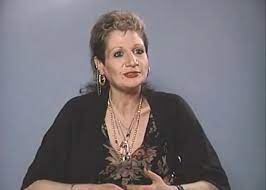
Iris de la Cruz (1954-1991) was an activist, educator, speaker, and outreach worker who was a pioneer in founding support groups for sex workers, drug users, and other marginalized individuals living with HIV. De la Cruz wrote a regular column for the People with AIDS Coalition of New York’s Newsline magazine. The HIV housing and supportive services group Iris House is named in her honor. Activist, educator, and outreach worker Patricia Shelton, diagnosed with HIV in 1991, will read from de la Cruz’s writings.
Marlon Riggs (1957-1994) was a filmmaker, poet, educator, and activist. His documentaries — “Tongues Untied” and “Black Is… Black Ain’t” (both done with poet Essex Hemphill) and “Ethnic Notions” and “Color Adjustment” — explored representations of race and sexuality, especially the Black gay experience, in American culture. “Tongues Untied,” which received funding from the National Endowment for the Arts and aired on public television, was among the works that fueled North Carolina Senator Jesse Helms’ vituperative attacks on the NEA and PBS. John Grauwiler, a teacher and co-founder of Gays Against Guns who was diagnosed with HIV in 2005, will read from Riggs’ work.
Paul Monette (1945-1995) was a writer, poet, and activist whose best known book was “Borrowed Time: An AIDS Memoir,” in which he recounted his lover Roger Horwitz’s 19-month battle against AIDS, starting with “the day we began to live on the moon.” In “Becoming a Man: Half a Life Story,” which won the 1992 National Book Award for Nonfiction, Monette tells his own story of living in the closet before he met Horwitz in 1974. Ed Barron, a New Jersey-based activist diagnosed with HIV in 1986, will read from Horwitz’s work.
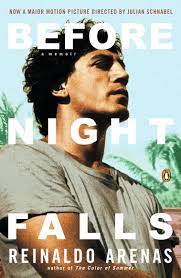
Reinaldo Arenas (1943-1990) was a Cuban-born poet, novelist, and playwright whose imprisonment during the Castro regime after conviction for “ideological deviation” led him to join the 1980 Mariel Boatlift to the US. His gripping memoir about his time in Cuba and after, “Before Night Falls,” became, after his death, a movie that starred Javier Bardem. Lillibeth Gonzalez, a community health educator at GMHC who was diagnosed with HIV in 1992, will read from Arenas’ work.
Mary Bowman (1988-2019) was a poet born with HIV who used both poetry and music to address issues around HIV. During the 2015 AIDSWatch annual lobbying effort in Washington, Bowman was recognized with a Positive Leadership Award. Bowman’s work will be read by Kineen MaFa, an artivist, spiritual guide, and speaker who was diagnosed with HIV in 2003.
David Feinberg (1956-1994) was a member of ACT UP, a contributor to numerous mainstream and LGBTQ publications, and the author of several novels and books of essays. The protagonist of his novels “Eighty-Sized” — which won the Lambda Literary Award for Gay Men’s Fiction and the American Library Association’s Gay/ Lesbian Award for Fiction — and “Spontaneous Combustion” was a young gay man modeled very much, by Feinberg’s admission, on himself. His final book was a collection of essays, “Queer and Loathing: Rants and Raves of a Raging AIDS Clone.” Writer, actor, HIV advocate, and teacher Bruce Ward, who has been living with HIV since 1984, will read from Feinberg’s work.
B.Michael Hunter (1958-2001), an educator and cultural activist, was a member of Other Countries, a New York collective of Black gay writers, for which he was the editor of “Sojourner: Black Gay Voices in the Age of AIDS,” which won the Lambda Literary Small Press Book Award. Hunter’s work will be read by Ivy Kwan Arce, a mother, artist, designer, and activist who was diagnosed with HIV in 1990.

